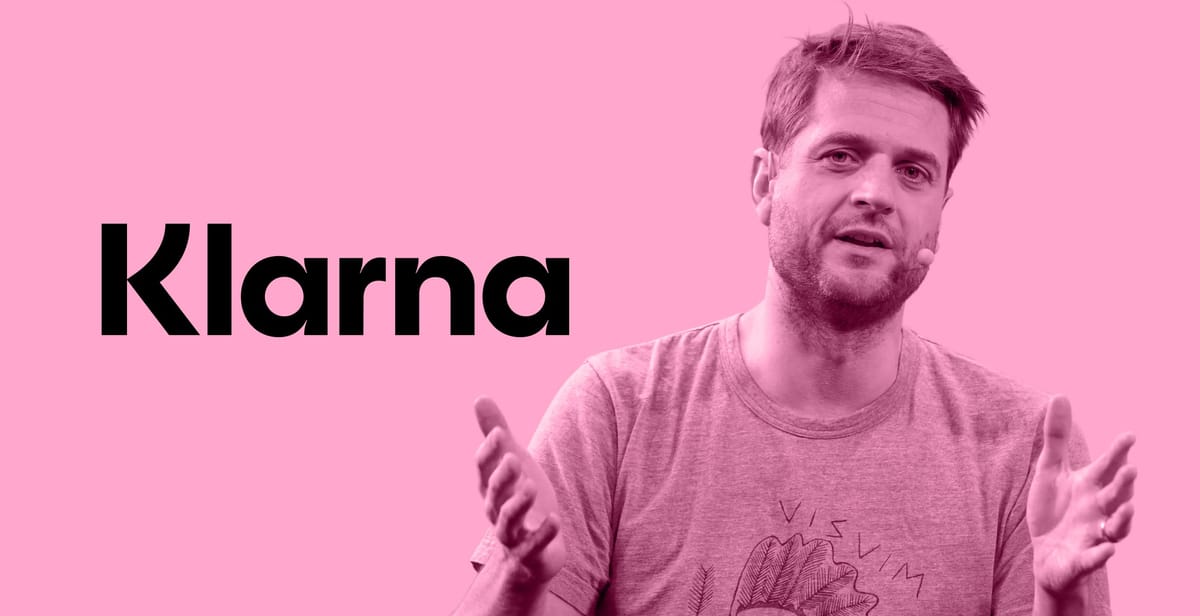
After touting its AI-powered customer service as the future, buy-now-pay-later giant Klarna is backtracking. The Swedish fintech is now actively recruiting human customer service agents, with CEO Sebastian Siemiatkowski acknowledging that the company's aggressive push toward automation "went too far" and compromised service quality.
Key Points:
- Klarna is adding human customer service representatives after admitting its AI-driven cost-cutting strategy hurt quality
- The company is piloting an "Uber-type" remote work model that will eventually replace its outsourced agents
- Despite the shift, Klarna remains bullish on AI and still expects workforce reductions through attrition
"From a brand perspective, a company perspective, I just think it's so critical that you are clear to your customer that there will be always a human if you want," Siemiatkowski told Bloomberg during an interview at the company's Stockholm headquarters.
The change marks a significant reversal for a company that was among the first to partner with OpenAI, with Siemiatkowski previously declaring he wanted Klarna to be the tech giant's "favorite guinea pig."
In 2024, Klarna boasted that its AI assistant could handle the work of 700 customer service agents, managing 75% of customer chats in over 35 languages. The company saw this as a path to reduce its workforce from 5,000 to 2,000 employees through natural attrition. However, the reality proved more complex. Customers reported frustrations with the AI’s limitations, leading to a decline in service quality.
But the cost-cutting strategy that helped Klarna navigate the end of the fintech boom – which saw its valuation plummet from a peak of $45.6 billion to as low as $6.7 billion – has apparently reached its limits. "As cost unfortunately seems to have been a too predominant evaluation factor when organizing this, what you end up having is lower quality," Siemiatkowski admitted. "Really investing in the quality of the human support is the way of the future for us."
Now the company is piloting a new customer service model that Siemiatkowski describes as an "Uber type of setup" where employees can log in and work remotely. The program aims to tap into new talent pools including students, rural populations, and even passionate Klarna users who might want to work for the company.
Eventually, Klarna hopes to replace "the few thousand human agents" it currently outsources with this new in-house setup, potentially creating a more direct relationship between its brand and customers while maintaining more control over service quality.
The shift highlights the risks enterprises face when replacing humans with emerging technology. While AI has made impressive advances, the reality of customer service interactions remains more complex than many companies initially anticipated. A growing number of firms are now struggling with similar questions about how to balance AI efficiency with human touch points.
Despite the course correction, Klarna – which counts 93 million customers and over 600,000 retail partners worldwide – remains enthusiastic about AI's broader potential. Siemiatkowski points to ongoing efforts to rebuild the company's tech stack with AI improvements. One of Klarna's key goals this year is to offer the first version of a digital financial assistant that could eventually negotiate on customers' behalf to secure better interest rates and insurance premiums.
The company also hasn't abandoned its efficiency targets. Through natural attrition of about 20% annually, Siemiatkowski expects the workforce to shrink from about 3,000 to 2,500 employees over the next year – and that pace could accelerate as technology improves. When asked about the timeline, the CEO joked, "I feel a bit like Elon Musk, always wanting to say it's going to happen tomorrow, when it's going take a little bit longer. I think it's very likely within 12 months."
Klarna's recalibration comes as the company prepares for its next chapter. The fintech had been seeking to raise at least $1 billion in an IPO with a target valuation exceeding $15 billion, though Bloomberg reports those plans were temporarily paused during last month's market volatility.
For now, Klarna's AI reversal offers an important case study in the limitations of automation – and a reminder that even in our increasingly digital financial world, sometimes customers just want to talk to a human.
